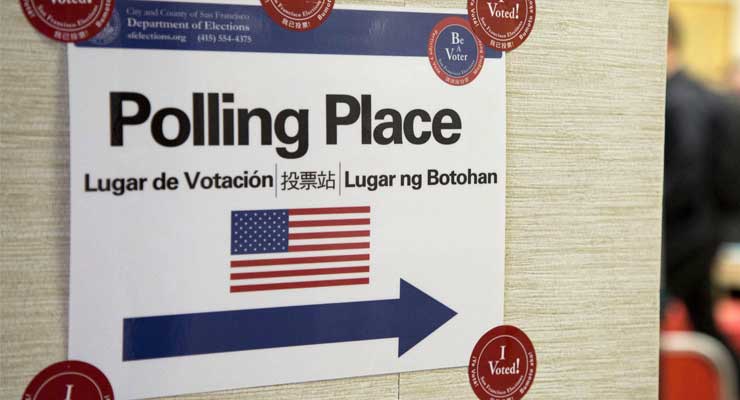
Citizens United gave birth to so-called Buddy Groups that have come to dominate election spending
by Ian Vandewalker from the Brennan Center:
In next week’s primary, Floridians will vote to determine the party nominees for the state’s U.S. Senate seat. The Florida contest is expected to be one of the most competitive Senate races this year, and FEC filings show that $6.2 million has been spent so far by outside groups nominally unconnected to the candidates themselves. However, a large portion — $2.1 million, or 34 percent of non-party outside spending — has come from candidate-specific groups, known as “buddy groups,” devoted to boosting a single candidate but unrestricted by fundraising rules that apply to candidates’ own committees. These groups sprang up after Citizens United gave the green light to unlimited spending so long as it’s nominally independent from candidates, and they have flourished in recent years with only relatively toothless rules to prevent them from choreographing their activities with their favored candidates.
On Tuesday, Democrats’ choices include establishment favorite U.S. Rep. Patrick Murphy and left-wing Rep. Alan Grayson. On the Republican side, the front runners are incumbent Sen. Marco Rubio and building contractor Carlos Beruff, who has echoed some of the themes of Donald Trump’s presidential campaign.
The significant portion of outside spending coming from candidate-specific groups is likely to continue to climb, particularly since Rubio’s June 22 decision to run for reelection was relatively recent. The senator’s failed presidential bid was pioneering in its reliance on single-candidate groups, including an affiliated dark-money group and its sister super PAC, each named a variation of “Conservative Solutions.”
The day Rubio announced he would run for reelection, a new super PAC called Florida First Project was founded. The super PAC is run by several people who worked for either Conservative Solutions or Rubio’s presidential campaign. The following day, Conservative Solutions gave Florida First Project $100,000, and it has since given another $800,000 — accounting for almost half of Florida First’s total receipts.
Most of the candidates in the Republican primary have had single-candidate groups in their corner, although Rubio’s entry knocked several candidates out before the groups supporting them could engage in major spending. Beruff has been aided by a buddy-group funded mostly by fellow members of the Florida real-estate development industry. Another group, Reform Washington, was formed to support Lt. Gov. Carlos Lopez-Cantera’s run for the Senate seat and funded largely by Rubio booster Norman Braman and a host of mystery LLCs. Reform Washington gave $100,000 to Florida First Project after Lopez-Cantera withdrew and endorsed Rubio.
Rep. Murphy, the front runner in the Democratic primary, has his own single-candidate super PAC, Floridians for a Strong Middle Class. The candidate’s father and the company he runs provided half of the super PAC’s receipts, totaling $500,000. The group also counts several LLCs and partnerships as major contributors — it is unclear who is behind these businesses.
Overall, the top spenders in the race include the pro-Rubio Florida First Project; the U.S. Chamber of Commerce; and the Senate Leadership Fund, a super PAC with ties to Senate Majority Leader Mitch McConnell that was founded to protect the GOP majority in the Senate. Those three groups are in a virtual tie for first place, having spent approximately $1.5 million each in Florida. Their spending is driving an overwhelming outside spending advantage for Republicans: $4.6 million has been spent in aide of GOP candidates, mostly on ads attacking Murphy, compared to $1.5 million backing Democratic candidates.
As always, FEC data underestimates true spending totals, because the rules that require groups to report their expenditures have limited scope. One big ad buy that doesn’t show up in FEC filings was $1.5 million worth of cable TV ads criticizing Murphy in 2015. The spender was the American Future Fund, a nonprofit that used to be a central player in the political network built by the billionaire Koch brothers but was recently cut off from Koch money after it was implicated in a wide ranging investigation of dark money in California.
The Democrats’ counterpart to Senate Leadership Fund, called the Senate Majority PAC, is not far behind the leaders with $1 million in expenditures. Senate Majority is a super PAC that sports close ties with Minority Leader Harry Reid. Last month Patrick Murphy’s father doubled down on the $500,000 he had previously provided to the pro-Murphy buddy group and gave Senate Majority $1 million. Two days later, Senate Majority announced an ad buy supporting Murphy worth the same amount.
Leave a Reply